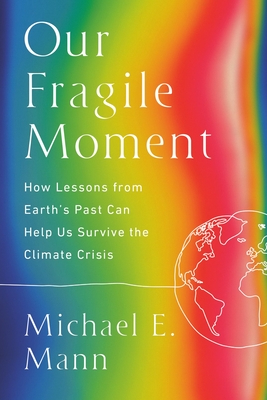Our Fragile Moment: How Lessons from Earth's Past Can Help Us Survive the Climate Crisis

Our Fragile Moment: How Lessons from Earth's Past Can Help Us Survive the Climate Crisis
For the vast majority of its 4.54 billion years, Earth has proven it can manage just fine without human beings. Then came the first proto-humans, who emerged just a little more than 2 million years ago--a fleeting moment in geological time. What is it that made this benevolent moment of ours possible? Ironically, it's the very same thing that now threatens us--climate change.
The drying of the tropics during the Pleistocene period created a niche for early hominids, who could hunt prey as forests gave way to savannahs in the African tropics. The sudden cooling episode known as the "Younger Dryas" 13,000 years ago, which occurred just as Earth was thawing out of the last Ice Age, spurred the development of agriculture in the fertile crescent. The "Little Ice Age" cooling of the 16th-19th centuries led to famines and pestilence for much of Europe, yet it was a boon for the Dutch, who were able to take advantage of stronger winds to shorten their ocean voyages.
The conditions that allowed humans to live on this earth are fragile, incredibly so. Climate variability has at times created new niches that humans or their ancestors could potentially exploit, and challenges that at times have spurred innovation. But there's a relatively narrow envelope of climate variability within which human civilization remains viable. And our survival depends on conditions remaining within that range. In this book, renowned climate scientist Michael Mann will arm readers with the knowledge necessary to appreciate the gravity of the unfolding climate crisis, while emboldening them--and others--to act before it truly does become too late.PRP: 123.94 Lei
Acesta este Prețul Recomandat de Producător. Prețul de vânzare al produsului este afișat mai jos.
99.15Lei
99.15Lei
123.94 LeiLivrare in 2-4 saptamani
Descrierea produsului
For the vast majority of its 4.54 billion years, Earth has proven it can manage just fine without human beings. Then came the first proto-humans, who emerged just a little more than 2 million years ago--a fleeting moment in geological time. What is it that made this benevolent moment of ours possible? Ironically, it's the very same thing that now threatens us--climate change.
The drying of the tropics during the Pleistocene period created a niche for early hominids, who could hunt prey as forests gave way to savannahs in the African tropics. The sudden cooling episode known as the "Younger Dryas" 13,000 years ago, which occurred just as Earth was thawing out of the last Ice Age, spurred the development of agriculture in the fertile crescent. The "Little Ice Age" cooling of the 16th-19th centuries led to famines and pestilence for much of Europe, yet it was a boon for the Dutch, who were able to take advantage of stronger winds to shorten their ocean voyages.
The conditions that allowed humans to live on this earth are fragile, incredibly so. Climate variability has at times created new niches that humans or their ancestors could potentially exploit, and challenges that at times have spurred innovation. But there's a relatively narrow envelope of climate variability within which human civilization remains viable. And our survival depends on conditions remaining within that range. In this book, renowned climate scientist Michael Mann will arm readers with the knowledge necessary to appreciate the gravity of the unfolding climate crisis, while emboldening them--and others--to act before it truly does become too late.Detaliile produsului









